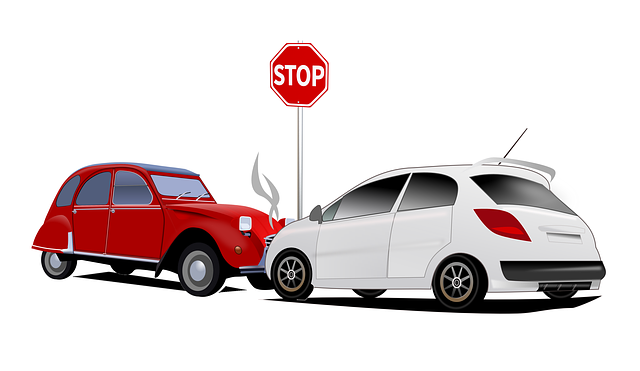Owning a car brings convenience, independence, and pride. However, it also comes with a responsibility to drive safely and protect others on the road. Accidents, even minor ones, can lead to damage, injury, or financial loss—not only to you but also to others involved. That’s why car insurance exists: to provide financial protection when things go wrong.
Among all types of coverage, third party car insurance is the most basic yet the most important. It is not optional; it is a legal requirement under the Motor Vehicles Act. This form of insurance ensures that if your vehicle causes harm to another person, vehicle, or property, the financial burden does not fall entirely on you.
What Third Party Car Insurance Means
Third party car insurance covers liabilities that arise when your car causes injury, death, or property damage to someone else. Here, the “first party” is the car owner, the “second party” is the insurance company, and the “third party” refers to the person affected by the accident.
If you accidentally damage another car or injure a pedestrian, the insurer compensates the affected party for their loss. Without this cover, you would be legally and financially responsible for paying those costs yourself.
This type of policy does not cover your own vehicle’s damage or personal injuries. Its purpose is to protect third parties and ensure victims receive compensation without long legal delays.
Legal Requirement and Importance
The Indian government mandates third party insurance for all vehicles operating on public roads. Driving without valid third party coverage is a punishable offence and can lead to fines, suspension of licence, or even imprisonment.
The law ensures that victims of road accidents are not left without recourse if the responsible driver cannot afford to pay for the damage. By making third party insurance compulsory, it creates accountability and fairness on the road.
Coverage and Benefits
Third party car insurance provides protection in three major areas:
1. Injury or Death of a Third Person
If an accident causes injury or death to another person, the insurer pays compensation as decided by the Motor Accident Claims Tribunal. The amount depends on the severity of the damage and other legal considerations.
2. Damage to Third Party Property
If your vehicle damages another car, wall, shop, or any public property, the policy covers repair or replacement costs up to the limit specified in the policy document.
3. Legal and Financial Assistance
In case of legal proceedings, the insurer handles the financial liabilities and assists with settlement or compensation as per the terms of coverage.
This ensures that both the affected party and the policyholder are protected from financial distress following an accident.
What Is Not Covered
It is equally important to understand what third party car insurance does not include.
- Damage to your own car in an accident or natural calamity.
- Theft or total loss of your vehicle.
- Injuries or death of the policyholder.
- Damage caused when driving under the influence of alcohol or without a valid licence.
- Accidents outside the geographical limits mentioned in the policy.
For coverage of personal losses, one must opt for a comprehensive policy that includes both third party and own-damage protection.
Difference Between Third Party and Comprehensive Insurance
While third party insurance is legally mandatory, comprehensive insurance is optional. The difference lies in the level of protection.
A comprehensive policy covers not only third party liabilities but also your own vehicle’s damage due to accidents, fire, theft, or natural disasters. It also offers add-ons such as zero depreciation, engine protection, and roadside assistance.
Third party insurance, on the other hand, focuses solely on protecting others affected by your vehicle. It is more affordable but limited in scope.
Choosing between the two depends on your vehicle’s age, usage, and value. For new or high-value cars, a comprehensive plan provides better protection. For older cars, maintaining only third party insurance may be more economical.
Premium and Policy Tenure
The premium for third party car insurance is regulated by the Insurance Regulatory and Development Authority of India (IRDAI). It depends primarily on the vehicle’s engine capacity and type (private or commercial). Factors such as location or car model have minimal influence on pricing.
The tenure of third party policies for new cars is generally three years, as per IRDAI norms, while renewals can be annual or multi-year depending on preference.
How to Buy or Renew the Policy
Buying or renewing car insurance is quick and convenient online. Most insurers and aggregators offer easy-to-navigate platforms.
- Visit a trusted insurer’s website or comparison portal.
- Enter vehicle registration details and engine capacity.
- Select third party coverage and review the policy inclusions.
- Complete payment securely.
- Download the policy document instantly and keep both digital and printed copies.
Timely renewal is crucial. Even a short lapse can lead to penalties or leave you unprotected in case of an accident.
When Third Party Insurance Is the Right Choice
While comprehensive coverage is ideal, third party insurance makes sense for certain drivers and vehicles:
- Cars that are several years old and have low resale value.
- Vehicles used infrequently or within limited areas.
- Owners seeking minimal mandatory compliance at affordable premiums.
In such cases, third party coverage fulfils legal obligations without unnecessary expense. However, drivers should still exercise caution, as own damages and theft remain uncovered.
Claim Process
In the event of an accident involving a third party, follow these steps:
- Inform your insurer immediately with details of the incident.
- File a police report, especially if injury or property damage occurred.
- Share the claim reference number with the affected party for processing.
- The Motor Accident Claims Tribunal assesses the case and decides compensation.
- Once approved, the insurer pays the settlement amount directly to the claimant.
Keeping accurate records, photos, and witness details helps speed up claim processing and ensures transparency.
The Role of Third Party Insurance in Responsible Driving
Third party car insurance serves as a reminder of collective responsibility on the road. It ensures that no one is left uncompensated in the event of an accident, and it promotes accountability among drivers. The policy reflects the principle that road safety is not only about following rules but also about being financially and ethically prepared for unforeseen consequences.
Final Thoughts
Third party car insurance may seem basic, but its role is fundamental. It protects you from legal liabilities, secures compensation for affected parties, and keeps you compliant with the law. Driving without it not only risks penalties but also exposes you to financial losses that can far exceed the policy cost.
For every car owner, maintaining valid third party insurance is the first step toward responsible vehicle ownership. It creates a safety net for all road users, ensuring fairness and financial stability when accidents occur. Whether you drive daily or occasionally, this coverage remains an essential companion on every journey.
Image by Tumisu from Pixabay (Free for Commercial use)
Image Published on January 21, 2017




